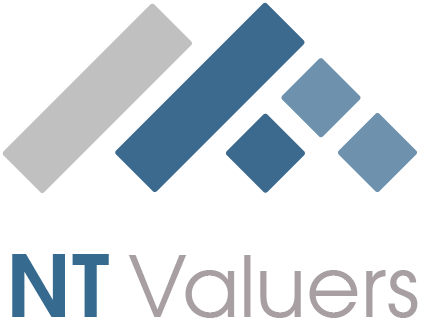
What is Property Valuation?
A valuation is the most tested method to calculate the value of any property type. It’s an intricate, multistage process used by property valuers in the Northern Territory to develop a legally-recognised report.
The process could be applied for a host of different property types and purposes.
This could mean a:
- residential
- commercial
- retail
- industrial
- or rural property, among others
These valuations could be required for:
- various government applications
- your tax obligations
- financial reporting and compliance
- or a range of legal procedures
Your valuation is then summarised into an exhaustive report. This report details a comprehensive analysis of around 200 internal and external factors relating to your property. More on that soon
Is this the same as a Bank Valuation?
In one word, no. Bank valuers employ much of the same methods as real estate valuers, but to very different ends. This is often understood as the difference between bank valuation and market value.
Banks generally conduct valuations on behalf of a lender. This is a critical point in the process of buying any property. Similarly, the ultimate goal is to establish a value for said property.
That value, often quite conservative, is used by the lender to determine the appropriate loan.
How can I get a Valuation of my Property?
That’s the easy part. Independent valuers are well versed in the ups and downs of the market. They have all the necessary training to provide you with a comprehensive valuation report.
Such a report can be delivered at either its current market value or a chosen past date.
Our Certified Practising Valuers (CPVs) are trained representatives of the Australian Property Institute (API). What does that mean for you? A service delivered by a highly qualified professional who’s constantly learning, upholds peerless quality standards and has access to the best databases in the business.
That’s not to mention each CPV must complete a demanding API-accredited course and the relevant API training. This prepares them with the specialised knowledge required to ensure the value of your property is a true reflection of the market.
How to get the best results out of a Property Valuation
Certified property valuers are trained to get the full picture. Much of what they might consider is out of your control, so it's crucial to take stock of where you can make a difference.
Factors your valuer will consider include:
- the overall size and condition of your property
- comparable sales figures in your local area
- any environmental risk factors
- the area’s zoning and more
What can you do to help a Property Valuation?
With this in mind, the first thing to work on is presentation. A fresh coat of paint, a neat garden and a lack of clutter can work wonders. Imagine you’re a potential renter coming to see a home for the first time. What would you like to see?
Valuers have access to incredibly extensive property market databases. They will compare your property against other successful sales in the area. The best you can do here is make sure they don’t miss any good ones. Come equipped with any recent sales information you can muster.
Want to get the best results possible? Try some of the following:
- get your hands on a copy of your local council rates
- carry out all those little improvements you’ve been thinking of
- and make sure your kitchens, bathrooms and outdoor living areas are in tip-top shape
Taking care of your property is the name of the game here. You’ll want to ensure any maintenance, landscaping or remodelling is done to the highest standards.
What could hurt your Property Valuation?
For every way of improving your home’s value, there's a factor that may drive it down.
To name but a few:
- your neighbourhood
- supply and demand
- interior and exterior aesthetics
- and necessary maintenance or repairs
Valuers examine your property’s surroundings extensively. Nearby abandoned properties, crime statistics, noise pollution and the like could serve as a red flag. If your area is prone to any form of natural disaster, that would be another red flag.
Conduct a thorough inspection of your home before your valuation. List anything that ought-to be replaced or repaired. Pay close attention to the state of your bathrooms and kitchen, particularly sinks, faucets, cabinets and damaged flooring.
Finally, clutter is your worst enemy. Clearing it out is one of the easiest ways to ensure you start off on the right foot.
Home Valuation without going inside
Generally, valuers will need to inspect both the inside and outside of your home. This is, however, not the only way it's done.
For information on valuations without interior inspections, ask a certified valuer about:
- desktop
- and kerbside valuations
CPVs boast all the resources and training to carry out a fully remote property valuation, known as a desktop valuation. This does require that your property and its surroundings have the requisite information available. That said, CPVs have access to extremely comprehensive property databases.
Valuers will attempt to access information pertaining to your property’s:
- size, location and condition
- comparable sales, foreclosures and prices
- local amenities, schooling and zoning
- and more
It's also important to note that desktop valuations may not be sufficient for all purposes. The interior inspection is seen as an important part of the process.
Kerbside valuations, meanwhile, include meticulous external inspections. This is in addition to the steps described for desktop valuations.
Closing Off
Though much of the valuation process is out of your hands, there are a few things you can control. You’ll want to work on presentation, carry out repairs or renovations and gather as much information about your property and local area as possible.
Remember that fully external and or remote inspections do occur, but are generally reserved for low-risk applications. The best approach is to cover every angle.
Be sure to seek out the services of a Certified Practising Valuer. They will ensure your valuation is carried out to the standards of the API and that no stone is left unturned.
For more information, or to receive a free quote on your next valuation, speak to one of our licensed valuers today.







